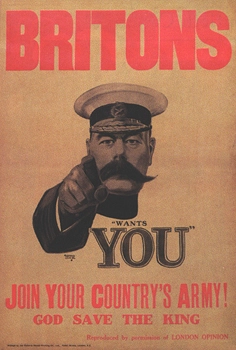Further up the line, a group of Scots played the Germans at football with helmets for goalposts. The Germans won 3–2. But the festivities had to end. With reluctant handshakes, they each returned to their trenches and grudgingly took up their arms. This fraternization was very much against orders. It was never to happen, to such a large extent, again.
The Eastern Front
War had begun on the Eastern Front. Two Russian armies bore down into East Prussia, while the German army was led by the formidable duo of Generals Paul von Hindenburg and Erich Ludendorff. The Germans, in full possession of Russian plans, decimated the first Russian army. ‘The tsar trusted me,’ wailed the Russian commander, Alexander Samsonov. ‘How can I ever face him again?’ He didn’t – he walked into a nearby wood and shot himself. The second Russian army fared no better. The Battles of Tannenberg and the Masurian Lakes went down as terrible defeats for Russia. The Austrian–Hungarian empire, the instigators of this whole war, was faring no better.

Russian infantry, 1914
The Germans now found themselves in the very situation they had wanted to avoid – a war on two fronts. A system of over 1,000 miles of defensive trenches appeared on the Eastern Front. Although much longer – unlike the Western Front, the front lines were often as much as fifty miles apart – these fronts were not continuous, and were lightly defended. German sources of manpower and equipment were stretched even further when, throughout the war, they were obliged to send reinforcements to help the Austrian–Hungarians. They felt as if they were ‘shackled to a corpse’.
Global War
The British asked their dominions to seize nearby German colonies, requests that were gladly accepted. By October 1914, Samoa had fallen to New Zealand, and German New Guinea and the Bismarck Archipelago (modern-day Papua New Guinea) to Australia.
Japan declared war on Germany on 23 August 1914 and promptly seized all the German-held islands in the North Pacific. In September, Japanese forces landed in neutral China and laid siege to the German base at Tsingtao on the coast of China, capturing it on 7 November.
In Africa, the war was fought against the German colonies. In German East Africa, the maverick German commander, Paul von Lettow-Vorbeck, held out for the whole war, only surrendering on 23 November 1918. Elsewhere, Germany lost its colonies in West Africa with Togoland and Cameroon falling to the Allies, and in the south where South Africa conquered German South West Africa (Namibia) with relative ease.
On 23 May 1915, Italy entered the war on the side of the Allies. Having joined the Triple Alliance with Germany and Austria–Hungary in 1882, Italy had kept its neutrality until lured into war on the Allies’ side by British promises of Habsburg territory.
The War in Britain
Britain had a problem with men – not enough of them. The BEF, the professional army, was too small but the British, unlike its European counterparts, were against conscription. The answer was to raise an army of volunteers. The Secretary of State for War, Field Marshal Lord Horatio Kitchener, went on a recruitment drive. Throughout the country from 7 August 1914, posters adorned with his stern-looking face and pointing finger shouted out, ‘Your Country Needs You’.

Lord Kitchener’s recruitment poster, 1914
Kitchener and the government hoped for perhaps 100,000 volunteers within the first six months. Any more would cause logistical problems. In the event, they got two million by the end of 1915, such was the extent of British patriotism and British naivety. But these young men were not to blame for their ignorance – news reporting was severely censored and war reporters were barred from the front. Thus, speculation and rumour made up for where fact lacked.
1 comment